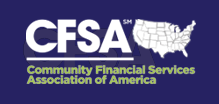CFPB Buried, Ignored Positive Payday Loan Customer “Tell Your Story” Testimonials It Requested
September 6, 2016 | Press Releases
Alexandria, Va. – New documents released today reveal for the first time more than 12,000 positive testimonials that payday loan customers submitted to the Consumer Financial Protection Bureau (CFPB) as part of the Bureau’s “Tell Your Story” initiative. These positive consumer stories, which comprise 98% of the payday loan-related submissions, have never been made public before. Instead, the Bureau buried and ignored these real-life customer stories as it marched forward with proposed rules that would restrict access to credit for millions of Americans.
The customer stories were unearthed through a Freedom of Information Act (FOIA) request filed December 31, 2015 by a representative of the Community Financial Services Association of America (CFSA) – the trade association that represents the short-term lending industry. During the five-year period covered by the FOIA request, 12,308 comments of the 12,546 comments submitted on short-term loans praised the industry and its products and services, or otherwise indicated positive experiences.
The FOIA documents also revealed only an extremely small number of critical payday lending comments were submitted to the CFPB – just 240 or less than 2%. What’s more, the vast majority of these critical comments were either mistakenly categorized as payday comments or they relate to scams and unregulated lenders that the CFPB’s proposed rule fails to address.
BY THE NUMBERS:
- Of the 12,546 comments submitted to the CFPB’s “Tell Your Story” portal, 12,308 comments – or more than 98% -- praised the industry and its products and services.
- Fewer than 240 customer comments – less than 2% -- were negative.
- Of the 240 negative comments, 84 comments were mistakenly categorized as payday lending comments. They did not reference the payday lending industry, but rather bank complaints, insurance complaints, and student loan complaints, to name a few examples.
- Of the 240 negative comments, 74 comments related to payday lending scams and/or unregulated lenders, both important consumer protection issues that the CFPB’s proposed rule fails to address.
This data is consistent with complaint data from the CFPB and FTC, as well surveys of payday loan customers. Since the CFPB’s complaint portal came online in 2011, complaints regarding payday loans have been miniscule – just 1.5% of all complaints. Meanwhile, these complaints continue to decline. The CFPB data mirrors consumer complaints to the Federal Trade Commission. In its summary of 2015 consumer complaints, the FTC found that just 0.003% of more than three million complaints related to payday lending. In both the CFPB data and FTC data, mortgages, credit cards and many other financial services had exponentially higher numbers of consumer complaints.
Customer surveys of payday loan borrowers confirm their overwhelming satisfaction with the product. A GSG/Tarrance survey found that 96% of borrowers saw payday loans as useful and a vast majority would recommend the service to others, highlighting their satisfaction with the service. An earlier Harris Interactive survey of payday loan borrowers had similar findings. Ninety-seven percent of borrowers were satisfied with the product and 95% value having the option to take out a payday loan.
“The Bureau is pursuing its ideological crusade against the regulated short-term lending industry with its proposed rules, while ignoring the positive experiences shared by consumers,” said Dennis Shaul, CEO of CFSA. “While claiming to listen to consumers through the “Tell Your Story” initiative, the CFPB discounts actual consumers’ needs and preferences. It is clear that millions of consumers are satisfied with the payday loan product and services, and do not want the federal government to take this valued credit option away from them.”
The Bureau has long claimed that its complaint database serves as its regulatory compass, and CFPB Director Richard Cordray recently told the Wall Street Journal that the database is part of the agency’s DNA and plays an integral role in guiding its areas of focus and enforcement actions. The CFPB’s “Tell Your Story” initiative now confirms the numbers in the CFPB’s complaint database; consumers are satisfied with payday loans. However, the CFPB’s disingenuous and heavy-handed actions clearly raise questions about its objectives and whether preserving Americans’ access to reliable and affordable short-term credit products is a priority.
Americans nationwide ardently disagree with the kind of unnecessary overreach of the short-term lending industry proposed by the CFPB. In the GSG/Tarrance survey, 74% of borrowers said they are concerned about more restrictions on payday loans by the government and 80% believe current regulations are enough. In the same survey, approximately two-thirds of borrowers oppose the proposed CFPB regulations.
“Consumers understand these loan products and make informed decisions when they need short-term credit,” said Shaul. “But the Bureau has continually disregarded their perspective, listening to dozens of special interest groups and consumer activist organizations rather than any of the millions of American consumers who will face the harsh consequences of its rulemaking.”

